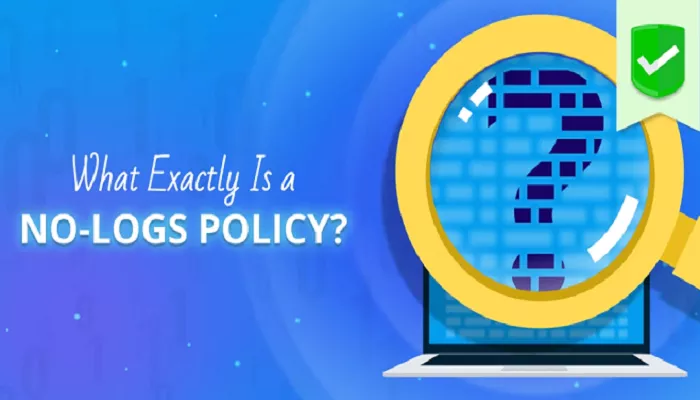In today’s digital landscape, online privacy is more crucial than ever. With the increasing threats of data breaches, surveillance, and cyberattacks, many individuals turn to Virtual Private Networks (VPNs) to safeguard their online activities. A key feature that distinguishes trustworthy VPN services is their commitment to a no-logs policy. This article delves into what a no-logs policy entails, its significance, and how to identify VPN providers that genuinely uphold this promise.
What Is a No-Logs Policy?
A no-logs policy, also known as a zero-logs policy, is a commitment by a VPN provider not to collect, store, or share any information about a user’s online activities. This includes browsing history, IP addresses, session durations, and data usage. By not retaining such data, VPNs ensure that even if compelled by legal authorities, they have no user information to disclose.
Types of VPN Logs
Understanding the different types of logs can help users make informed decisions:
1. Connection Logs
These logs record metadata about your VPN sessions, such as:
- Inbound and outbound IP addresses
- Connection timestamps
- Session durations
- Amount of data transferred
While some VPNs collect this data for maintenance purposes, a strict no-logs policy ensures that such information is either not collected or immediately discarded.
2. Usage Logs
These are more intrusive and detail your online behavior, including:
- Websites visited
- Files downloaded
- Applications used
Reputable VPNs with no-logs policies avoid collecting usage logs to protect user privacy.
Why Is a No-Logs Policy Important?
1. Enhances Privacy
The primary purpose of a VPN is to provide privacy. By not logging user data, VPNs ensure that your online activities remain confidential, even from the service provider itself.
2. Protects Against Data Breaches
If a VPN doesn’t store user data, there’s nothing for hackers to steal in the event of a data breach. This minimizes the risk of personal information being exposed.
3. Builds Trust
A transparent no-logs policy demonstrates a VPN provider’s commitment to user privacy, fostering trust among its user base.
4. Legal Protection
In jurisdictions where authorities may request user data, a no-logs policy ensures that the VPN provider has no information to hand over, safeguarding users from potential legal repercussions.
Types of Logging Policies
Not all “no-logs” policies are the same. Some VPNs claim to be no-logs but still collect certain data. Here’s the breakdown:
1. Strict No-Logs Policy (Zero Logs)
- No data is stored—not even connection timestamps.
- Best for privacy—nothing can be traced back to you.
- Example Providers: ExpressVPN, NordVPN, ProtonVPN.
2. Partial Logging (Some Data Kept)
- May store connection times, bandwidth usage, or IP addresses (but claim not to track activity).
- Riskier for privacy—could still be used to identify users.
- Example Providers: Some free VPNs or lesser-known services.
3. Aggressive Logging (Not Truly Private)
- Keeps detailed logs (websites visited, downloads, real IP).
- Often sold to third parties (advertisers, governments).
- Avoid these VPNs if privacy is a priority.
How to Verify a VPN’s No-Logs Policy
1. Independent Audits
Reputable VPN providers often undergo third-party audits to validate their no-logs claims. These audits assess the provider’s infrastructure and practices to ensure compliance with their stated policies.
2. Transparency Reports
Some VPNs publish regular transparency reports detailing any data requests they’ve received and how they’ve responded. Consistently reporting zero data disclosures reinforces their no-logs commitment.
3. Jurisdiction
The country where a VPN is based affects its data retention obligations. Providers in privacy-friendly jurisdictions are less likely to be compelled to store or share user data.
Potential Pitfalls: Misleading No-Logs Claims
Not all VPNs claiming to have a no-logs policy are genuine. Some may collect minimal data and still market themselves as no-logs services. It’s essential to scrutinize their privacy policies and seek independent reviews.
Best No-Logs VPNs in 2025
Based on audits, jurisdiction, and transparency, these are the most trusted no-logs VPNs:
| VPN Provider | Jurisdiction | Independent Audit | Verified No-Logs Case |
|---|---|---|---|
| ExpressVPN | British Virgin Islands | Yes (PwC) | Yes |
| NordVPN | Panama | Yes (Deloitte) | Yes (2017 Server Raid) |
| ProtonVPN | Switzerland | Yes (Securitum) | Yes (Transparency Reports) |
| Surfshark | Netherlands | Yes (Cure53) | No past incidents |
| Mullvad | Sweden | Yes (Public Warrant Canary) | Yes (No User Data Stored) |
Conclusion
A no-logs policy is a cornerstone of any trustworthy VPN service. It ensures that your online activities remain private, even from the VPN provider itself. When selecting a VPN, prioritize those with verified no-logs policies, transparent practices, and a strong commitment to user privacy. By doing so, you can navigate the digital world with greater confidence and security.

